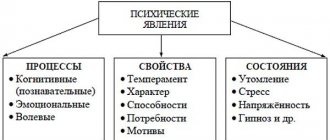Schizoids are so absorbed in their inner world that they completely isolate themselves from the outside. It is difficult to establish social contacts, and they do not strive for this. Their rich inner world replaces live communication for them. Emotional coldness and loneliness - this is how people with this disorder are accurately and succinctly characterized.
Psychological characteristics of the schizoid personality type
The leading psychological defense for this category of people is withdrawal into fantasy. Thinking creatively about the world is not always an escape from reality. If real life is replaced by an illusion, then this can be considered as one of the signs of this type of personality.
Schizoids are mainly attracted to theoretical, humanities, philosophy, and creative professions that require creativity and an individual mode of activity.
These people are rather introverted, their inner world is wide and multifaceted, among them there are many geniuses, hermits, and extraordinary personalities.
Causes
There are no exact causes of personality disorders, but there are several theories:
- Schizoid personality disorder is an echo from childhood. The child has not received enough parental love and is therefore unable to show feelings towards himself and others. This is what adherents of psychodynamic therapy think;
- Schizoid psychopathy is a disturbance in an individual’s self-image (I-concept). A person is disoriented in his personality and cannot identify parameters for his comfort. Self-psychologists think so;
- Personality disorder is idiosyncratic thinking. Symptoms appear in early childhood - delayed psychophysical development, developmental delay. Thought processes are unclear, the child is unable to adequately assess the emotional state of the people around him. This is what adherents of cognitive psychology believe.
There are also suggestions that schizoid psychopathy tends to be genetic.
Get help now
Do any of your relatives or friends have an addiction? Have you tried in every possible way to help, but as a result the person still returned to his past life?
You are not the first to encounter this problem, and we can help you.
We guarantee anonymity, we will persuade you to undergo treatment, and we will help you choose a center.
Call us
+7
or
Call me
Drives, affects, temperament of schizoid personalities
They tend to describe themselves as sensitive. Their sensitivity borders on the psychic.
Children may avoid contact with adults. Tend to form a schizoid structure. Difficulties arise at the oral level - they are afraid of being absorbed, eaten.
Projections and transformations of one's own hunger during fantasies of absorption. Schizoids perceive space as consuming and dangerous. They tend to withdraw, avoid, and reject the physical world.
Schizoids in most cases are not aggressive, although their fantasies may contain violence. Essentially, these people are soft and calm. They prefer horror films and apocalyptic scenarios. Calmly-minded eccentrics.
About schizoids, we can say that these individuals buried their aggression under a thick blanket of psychological defenses. Exposure to emotional reactions can affect their mood in different ways.
Alienation is a classic way of behaving when interacting with other people. However, they may feel that they are underestimated.
Schizoids are not empathetic enough to the less vibrant world of other people. Their perception may differ from most standard positions.
The schizoid personality type suffers from anxiety about personal safety. They are not gullible. There are many hermits among them. We can say about them that they are observers, researchers of human existence.
Schizoids experience a split between their own “I” and the world around them, between the experience of their own “I” and desire. Detachment from some part of oneself, life in general, is a common way of perceiving reality.
When splitting, a person expresses either one Ego state or the exact opposite. Divides the world into absolutely good and absolutely bad aspects. Moreover, over time, these positions may change.
Kinds
Schizoid accentuation is the presence in a person of characteristic signs of a mental disorder within the clinical norm. Deviations affect a person’s thinking and behavior. However, character traits are quite manageable and controlled by the individual. Schizoid accentuation of character is considered an extreme variant of the norm, schizoid psychopathy is an anomaly, schizophrenia is a mental illness.
Accentuation does not become a cause of social maladjustment, but serves as a regulator of an individual’s relationship with the outside world. Accentuation is often a mechanism of defense or adaptation. Unlike schizophrenics with a poor inner world, people with schizoid accentuation of character have a colorful and multifaceted inner space. The diagnosis of schizoid psychopathy is made based on the following criteria:
- The severity of abnormal character traits.
- Totality, predominance, dominance of abnormal features.
- Social maladjustment.
In cases of mild manifestations of the disorder, we are not talking about a mental diagnosis, but about personality characteristics. There are schizoid character types with sensitive and expansive manifestations. In the first case, the individual has traits characteristic of excessive sensitivity - shyness, timidity, asthenic affect (increased fatigue, instability of mood, weakening of self-control and endurance, impatience, restlessness).
Expansive-schizoid accentuation is the predominance in character of such traits as emotional coldness, sometimes feeble-mindedness, sthenic affect (increased performance, ability for long-term, continuous activity, resistance to external adverse factors, for example, lack of sleep). An expansive schizoid guy is often the owner of a strong-willed, decisive character. He does not tend to hesitate when making decisions; he rarely takes into account the position of other people.
In relationships with colleagues and acquaintances, such people behave dryly and formally. They are principled and often indifferent to the fate of others. They are often capricious and arrogant, and have a harsh, cruel disposition. Despite their tough character, they are vulnerable to negative reactions and assessments from others. In extreme situations, they show fussiness and are prone to outbursts of aggression and impulsive actions.
The variant schizoid-hysteroid personality type is distinguished by its characteristics: narcissism, egocentrism, demonstration of mental superiority. Unlike schizoids, schizo-hysteroid people are sensitive to the attention of others and dependent on it. Schizo-hysteroids are characterized by mannerisms, which is reflected in the choice of clothing, hairstyle and overall appearance.
The schizoid-epileptoid type combines pedantry, scrupulousness, persistence in achieving goals, innovation, and the tireless generation of new ideas. Usually such people pay great attention to building a career. They are zealous and responsible in fulfilling their official duties. They are characterized by the following traits: impartiality, external indifference.
Protective and adaptation processes in schizoid personality types
The leading mechanisms for these individuals are withdrawal into the inner world, the world of imagination. Or positioning oneself in opposition to some social positions. They have a personal opinion on all issues. For example, if most people have a fashionable ringtone on their mobile phone, then schizoids will definitely play something distant, unpopular, and without mass recognition and veneration.
Psychological defense mechanisms: introjection, avoidance and intellectualization are leading among schizoids.
Creative. Among the schizoid personality type you can meet many talented and extraordinary people. They may say about them: “Not of this world.”
The Danger of Personality Disorder
Is it dangerous? Schizoid traits are most pronounced in adolescence , but by the age of 30-40, many people with this disorder experience a moderate softening of the most pronounced aspects of their personality.
Schizoids do not pose any danger to people around them. Their personal characteristics are more a problem for themselves than for others, because their detachment, self-absorption, and oddities become a reason for ridicule and humiliation, especially in adolescence and young adulthood.
Also, older schizoids experience difficulties when trying to adapt to society.
How to cure anxiety disorder? You will find recommendations from psychologists on our website.
Object relations
The subjective life of schizoids is permeated with ambivalence regarding attachment. They crave intimacy even though they feel threatened by others. They seek distance to maintain their safety, but at the same time suffer from remoteness and loneliness.
The message of schizoids to the world looks something like this: “Come closer, I’m lonely, but stay at a distance, I’m afraid of being absorbed by you!”
These people are often indifferent to sex, but are able to have an orgasm; physiologically they are completely healthy. Selective in choosing partners, it takes more time to “warm up”. The closer the other person is, the more they perceive that sex means a trap. They are wary of any new connections. However, they may desire unattainable sexual objects, but are indifferent to the available ones.
The upbringing of these individuals could proceed in the pattern of “a schizoid man and an over-caring, suffocating mother.” Mom, most likely, “ruled the show” and controlled all processes in the family. A boundary-violating mother and an impatient, critical father. The child may be in a state of double clamping and emotionally false messages. We depend on care to protect our own “I” from approaching them. The double clamp manifests itself in the fact that one message is demonstrated verbally, and the child perceives another non-verbally. "I love you very much!" mother tells her little son, who has been waiting for her from work for a long time. And non-verbally, she strives to quickly complete communication with him simply because she is tired. The child is confused about which signal to perceive as reliable.
The childhood of schizoids is characterized by loneliness and isolation. Parents are distant, manifest themselves as oppressive and intruding, and a pattern of avoidance, distancing, and detachment is formed. Such children, and subsequently people, do not like to openly discuss their thoughts with someone or share their impressions. They do not like attention from society.
Treatment methods
To treat borderline conditions, antidepressants and antipsychotics are used, as well as drugs with nootropic effects and vitamin complexes. The doctor selects the type of drugs, dosage, and duration of therapy. Non-drug treatments include:
- Diet food.
- Sleep deprivation (limitation of duration).
- Water procedures (contrast shower, water hardening).
- Lateral therapy (zonal-lateral electrical stimulation - directed change, modulation of interaction between the hemispheres of the brain).
- Physiotherapy.
- Physiotherapy, reflexology.
- Psychotherapy.
Treatment is indicated if people of the schizoid type experience difficulties in social adaptation that interfere with professional activities and personal life. In most cases, no correction is required. In order to communicate meaningfully and live comfortably next to such people, you need to be able to find an approach to them.
Schizoid self
Schizoids, as a rule, do not care about the assessments of others. They do not accept conformity in others. These are not “collective people”; they view those who adapt to others as weak-willed and overly pliable. They don’t like small talk and consider it meaningless.
They may be slightly contemptuous of others and consider them not deep enough. This can lead to oppositional opinions. They may violate customs and norms that are established in a particular team. Avoid being defined and analyzed by other people.
Schizoid personality types are attracted to hysterical people, but when solving interpersonal problems, hysterical personalities try to get closer, and schizoid ones, on the contrary, try to move away.
They can be very caring towards others, but need to maintain their personal space.
A profession that allows you to get to know other people better and remain outside their interpretations is psychology. Schizoids may feel that psychologists have some power over other people in this regard.
Strives to find confirmation of his own originality and uniqueness. It should be internal rather than external. However, they can also be self-critical.
Signs of schizoid psychopathy in children
The first signs of abnormalities may appear in newborns in the form of early autism syndrome. Symptoms of the disorder include weak emotional contact with parents, monotonous behavior, and decreased ability to adapt to changing external conditions. At the same time, a slowdown in the development of speech and communication skills is revealed.
At 3-4 years of age, such children are often quiet and calm, do not strive to communicate with their peers, and usually play alone. The emotional connection with parents and relatives is weak or absent. Self-care skills develop slowly and with difficulty. Symptoms appear consistently over several years. Then, if there is no manifestation (manifestation of a clear clinical picture) of schizophrenia, a gradational compensation of the symptoms of psychopathy is more often observed.
In this case, 5-10 year old children successfully study at school, receive vocational education, and work in various fields of activity. At the same time, the signs of autism remain to a greater or lesser extent. The worsening of the disorder is manifested by a reluctance to communicate and pathological isolation. Such children often experience accelerated, intense development of mental abilities against the backdrop of delayed formation of motor skills.
Their movements look unnatural, angular, devoid of grace and plasticity. Clumsiness and clumsiness can be seen in head turns, limb movements, and gait. Cortical motor skills, which are based on goal-directed actions and planning of fine movements, are usually not involved in pathological processes.
Among people with the schizoid psychotype there are talented musicians, skilled craftsmen in the field of manual labor, who have well-developed manual skills. Children with schizoid accentuation of personality show early inclinations towards philosophical and thoughtful reflection. At an early age they are interested in questions of the meaning of life and the inevitability of death, the structure and origin of the world.
They delve into the essence of simple questions, answering in a detailed and original way, revealing unexpected aspects of the topic raised. School-age children demonstrate extraordinary mathematical abilities, the ability to think logically and find non-standard solutions to problems. Along with pronounced intellectual abilities, they demonstrate manifestations of social maladjustment.
They get lost in simple everyday situations and cannot cope with ordinary, everyday problems. They do not take part in collective games and mass events of their own free will. If schizoid manifestations progress, the individual becomes uncommunicative, self-absorbed, and extremely reserved.
Such people lack emotional responsiveness. Any attempts to communicate with others provoke a feeling of awkwardness and internal tension. They often avoid contact with strangers, avoiding places where such communication may occur. Representatives of the schizoid type show a reduced level of sociability, however, complete isolation is rare.
Selective sociability involves careful selection of applicants with whom contacts are maintained. Usually the circle of communication is narrow. In some cases, they establish many formal communication connections, which are determined by a rational reason and remain superficial. Informal relationships are difficult due to poorly developed intuition and the ability to empathize.
Transference and countertransference
Schizoids avoid any form of intervention. The work of a psychologist should be structured in doses. However, with sufficient trust in the psychologist, they can create a fairly effective working alliance.
These clients may seek help because their isolation from society may be painful, or they may seek different social behavior.
One of the popular requests of schizoids to a psychologist is to work with depressive states. Or they may fear that they are on the path to madness, especially if those close to them do not understand the way they think or do not share their values.
A schizoid needs time to feel safe in a psychological setting.
It is important for a psychologist not to intrude and to work gradually with such clients. It is important to understand that it is often possible to hear complex, confusing messages from schizoids; they may not understand themselves.
Such a client may be afraid of emotional distance from the psychologist or other people. Although he prefers to leave them at some distance from himself.
They can present themselves in communications as an unattainable sage or an enlightened lama.
Appearance and attitude to things
The way a schizoid woman dresses can rather be called strange. She can either mix a “cocktail” of incompatible styles into her outfit, or prefer nondescript, extremely modest clothes, which she wears, regardless of the setting and situation, be it a wedding ceremony or a walk in the yard. Being a born individualist, a young lady of this type will never sacrifice her comfort for the sake of social demands. If your favorite jeans look inappropriate at a celebration, she is unlikely to be concerned about this circumstance.
A certain sloppiness is very characteristic of schizoid women. You don’t need to renew your nail polish for a couple of months, and a sloppy ponytail instead of a neat hairstyle is the most common thing. You don’t have to pay any attention to appearance, because the main thing is not the form, but the content, the schizoid woman believes. It’s much easier to cover a stain on your trousers with a long jacket than to urgently change clothes and wash it - it’s so tedious, and why?
Sloppiness in clothing is complemented by the same chaos in everyday life. A schizoid woman’s apartment is her refuge, where only her rules reign. The dishes after dinner can be washed when the sink is overflowing, and rubbing the floors is pointless, since the dust also wants to rest and lie quietly - there is no need to disturb it. The next morning, a schizoid woman will put on the socks that she finds first, having completed a whole quest through a cluttered apartment. Her workplace will again not deviate from the general rule: in the eternal creative chaos that irritates everyone around, she herself can navigate perfectly.
Despite such disorder, schizoid women become strongly attached to their few but very beloved things, which are very difficult for them to part with. In old age, when this trait becomes more pronounced, schizoid “dens” become like a dump of all sorts of unnecessary things, but the Plyushkin ladies will never allow one of their relatives to clean up all this rubbish.
Psychologist's work with schizoid personalities
When a psychologist works with schizoid individuals, it is important to demonstrate to the client that the psychologist does not want to impose or suppress. The first thing the psychologist does at the beginning of the session is to check the comfort of the distance between himself and the client, asking his opinion on this matter. This looks like adjusting the distance of chairs during a meeting.
In the early stages of working with schizoids, interpretations should be avoided, as the client experiences fear of being invaded.
Attempting to get more from a schizoid than he expresses can cause resistance in him and increase the tendency to withdraw or resist.
Remarks and comments should be using the expressions of the clients themselves, quoting. Then such clients will understand that their boundaries are not being violated.
It can be difficult for schizoids to believe that their acute reactions can be understood and accepted by other people, so they are quite careful when presenting them to others.
Schizoids may worry that they are fundamentally different and cannot be understood by other people.
Clients with a schizoid personality type are afraid that if their inner world is revealed and studied, they may appear to others as eccentrics or even freaks. They care about the effect they have on people moving away. For a schizoid personality, it is valuable when they are perceived as talented people.
The emotional reactions of schizoids throughout life have been anecdotal or downplayed by commentators. They could be told: “Don’t be stupid, be like everyone else! And in general, stop flying in the clouds and go get some bread.”
One of the ways for a psychologist to inform a schizoid that his problems or requests are understood can be through artistic images.
Schizoid clients, if they feel understanding on the part of the psychologist, expect to meet with him as a respite from the demanding world. Gaining trust is quite difficult, but if this happens, the work will be effective.
Although schizoids also experience insights during a psychological session: as a rule, social functions do not improve. For example, they may avoid marriage, sexual relationships do not improve, etc. When a psychologist reminds a schizoid that they are working on his socialization, this can be perceived as a violation of personal boundaries, control, and a lack of empathy for his need for boundaries. Although socialization could be a request for work in a psychological session.
One of the leading conflicts that the psychologist has to resolve together with the schizoid during the session is the desire for intimacy and the fear of its occurrence.
How to communicate
In order to communicate fruitfully with a man or woman of a schizoid psychotype, you need to earn their trust. Careful, careful handling of such people can melt the ice and remove barriers to dialogue. The defensive reaction of a schizoid comes down to detachment from frustrating factors and objects (suggesting a real or imagined impossibility of satisfying needs).
He withdraws and withdraws into himself in situations where he feels discomfort or realizes the risk of psychological or physical injury. Distance can be actual (physical withdrawal from the person) or emotional (reluctance to continue the conversation, monosyllabic, vague answers). Such people do not see the point in pretending; they are straightforward and openly declare their reluctance to communicate with an unpleasant interlocutor. Principles for building relationships with a person of schizoid type:
- Don’t judge him for his strange behavior, for his desire to periodically retreat into his personal space.
- Provide stability and confidence in your partner. It is important for him to know that regardless of his repeated departures into his own world, his partner will still remain with him. He will repay the feeling of confidence in his partner’s feelings with devotion and sincere, deep love.
- React adequately to the lack of expressive emotions in response to an outside expression of tenderness. If he apparently does not react to such a manifestation of warmth, this does not mean that he does not value or feel anything himself.
- Do not force him to experience discomfort due to excessive caresses and love passions, dosedly sending romantic messages in his direction.
- Respect his desire to maintain distance.
He reacts in an unusual way to standard situations, which makes him stand out from those around him, who often consider him strange and incomprehensible, especially in moments of frightening, naked frankness. If you accept him as he is and do not try to change him, you will be able to maintain many years of warm and trusting relationships.
The schizoid character type is a borderline variant of the norm, which determines the characteristics of the individual’s relationship with the outside world.
Emotions, sex life and criminal profile of schizoids
The schizoid psychotype is characterized by a romantic relationship with a partner, but the choice of the latter is difficult due to the fact that sexual life is given the role of a gallery. Schizoids are more interested in their profession and hobbies than in relationships and sex. It is about such people that we can say that they are truly in love only with a scientific concept or philosophical idea, while family life is in the background for them. Schizoid originality can also manifest itself in sexual preferences, if any, ranging from masochistic perversions to sadism.
Criminal offenses committed by such individuals relate to the intellectual spheres. Schizoids make up the lion's share of cybercriminals, and also commit economic crimes, and the method of committing them is distinguished by the same originality and pretentious logic.
It is extremely difficult to obtain information when interviewing such a person, since his defensive reaction is to withdraw into himself. If a schizoid lies, then in lying he is guided by secondary signs, jumping from one topic to another, completely unrelated to the previous one. The verifier's strategy should be to create anxiety by demonstrating the adverse consequences of denial, which should definitely work. Poorly tolerating unusual living conditions and discomfort, a schizoid will certainly be able to focus on the questions posed with such a strategy.
Diagnostics
To make a diagnosis, specialists use special tests, as well as diagnostic criteria. Schizotypal disorder is detected when 4 signs from this list are present:
- indifference to surrounding people and events, asociality;
- increased irritability, especially when meeting new people;
- causeless outbursts of anger;
- eccentric behavior or predilection for “strange” clothing;
- the presence of one’s own obsessions, often contrary to generally accepted norms, as well as inadequate thinking;
- excessive suspicion bordering on paranoia;
- adolescents may experience sexual disorders;
- incoherent speech, visual and auditory hallucinations;
- communication with fictional characters or non-existent people.
When meeting a patient, the psychotherapist conducts an initial examination and also has a long conversation with him. All this makes it possible to identify disturbances in thinking and perception characteristic of schizotypal disorder. If these manifestations are observed in a patient over a long period, then there is a high probability that he will be diagnosed with schizotypal disorder.
Adaptation in society: how you can help a person
You will have to struggle with some traits for many months, if not years. The “help yourself” rule applies here. You will have to work with a psychologist or psychotherapist. The main directions will be:
- Adaptation in society.
- Building social contacts. As a rule, within the framework of group psychotherapy.
- Overcoming isolation.
- Understanding your own emotions.
- Developing the ability to express emotions and understand the feelings of others.
All this is discussed with a specialist.
You may also be interested in:










